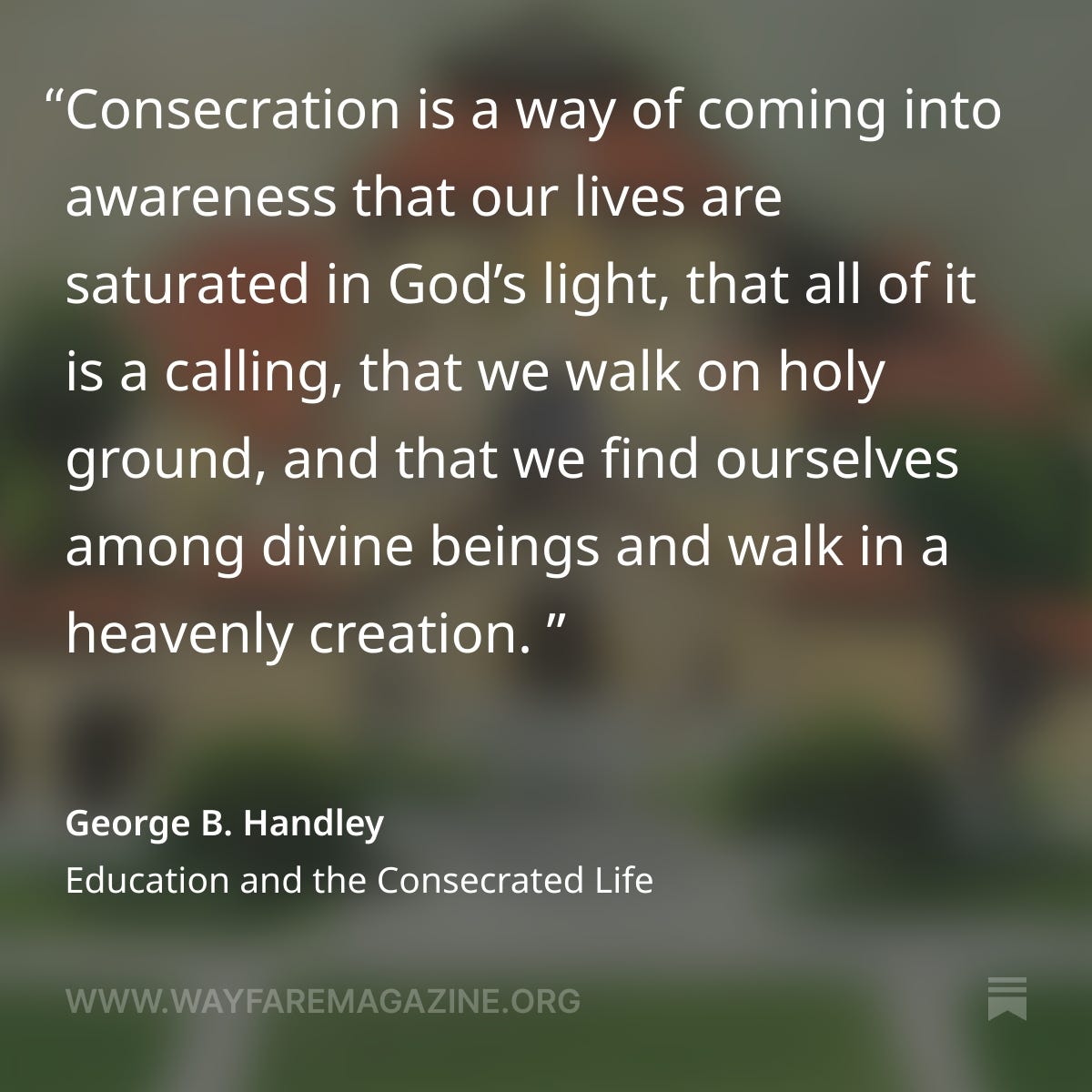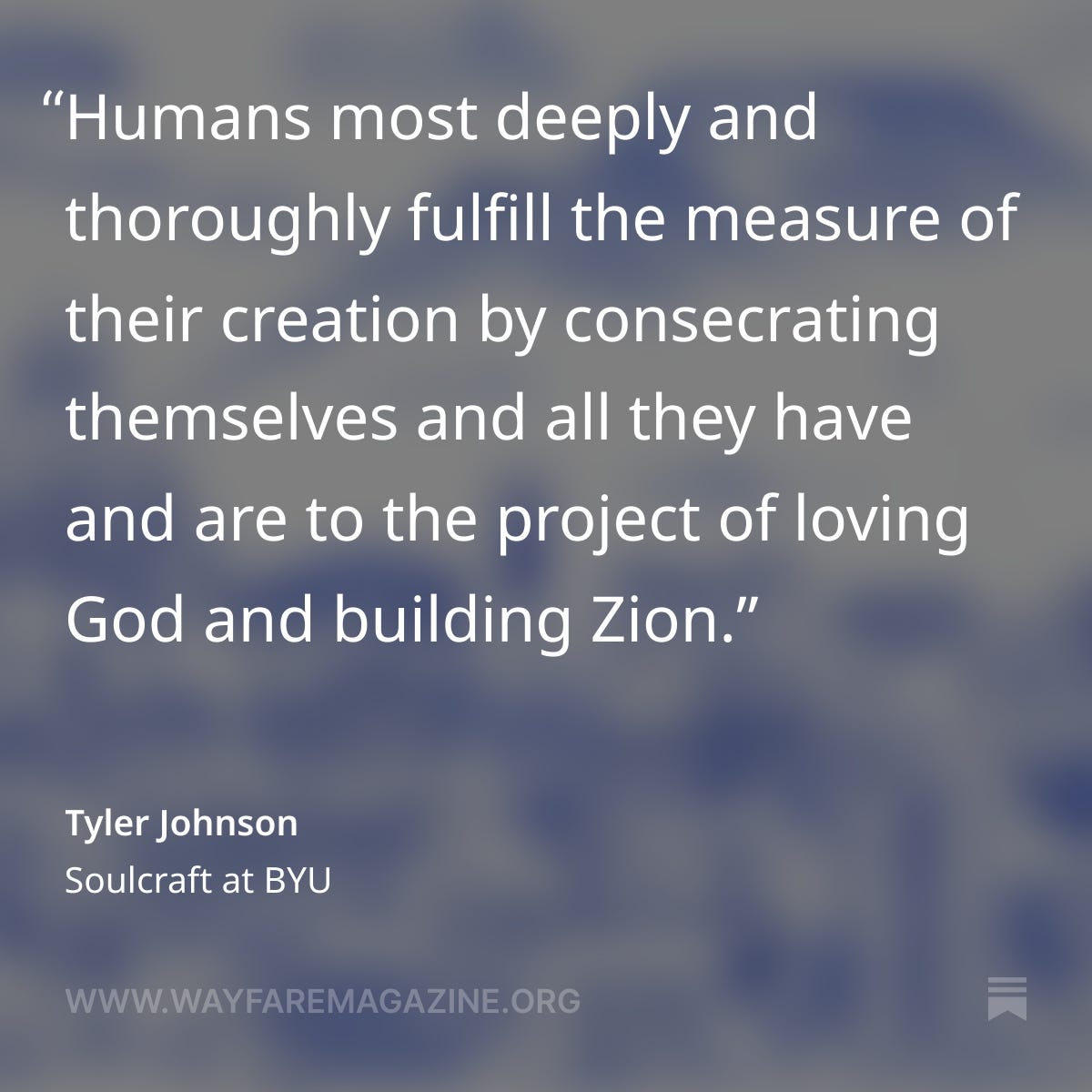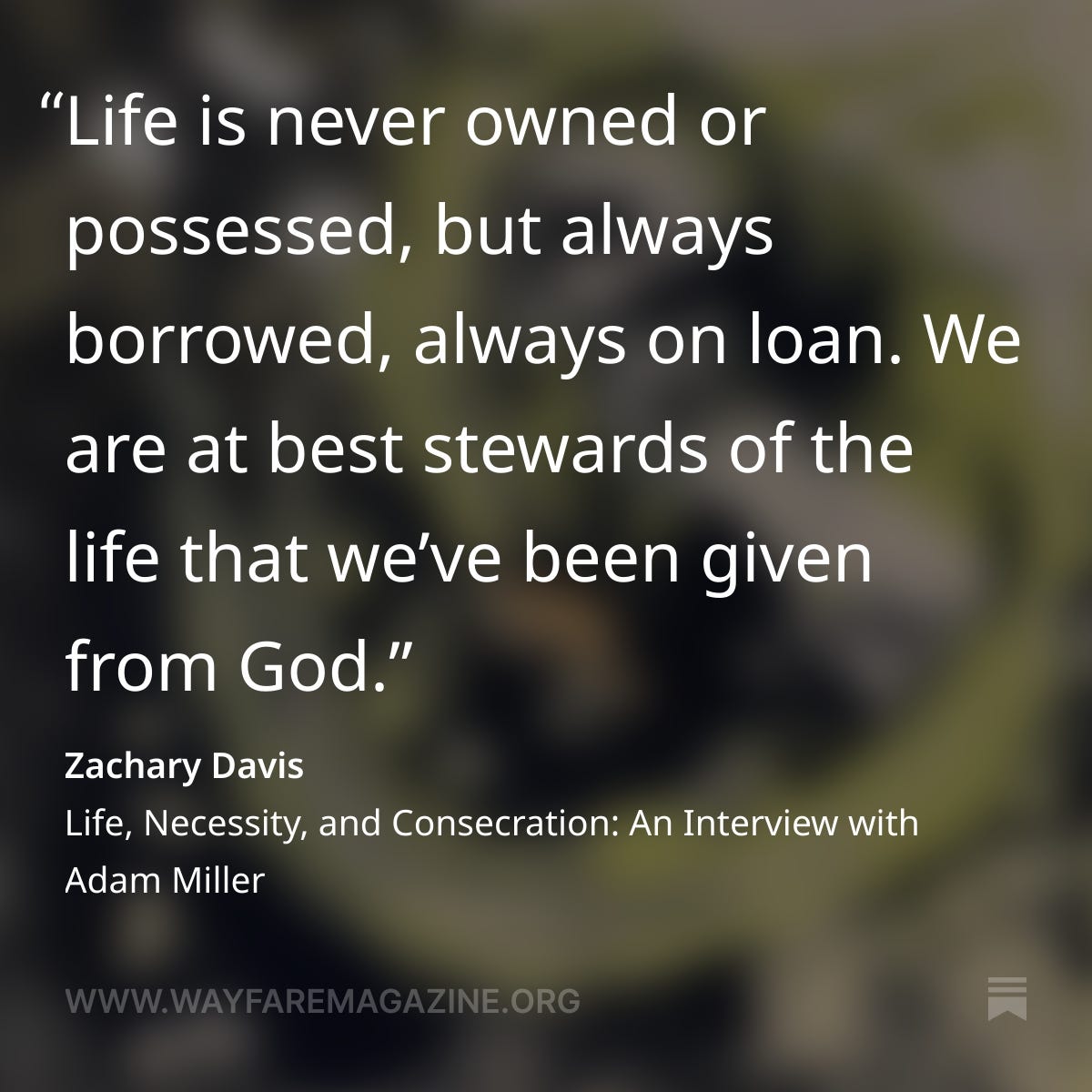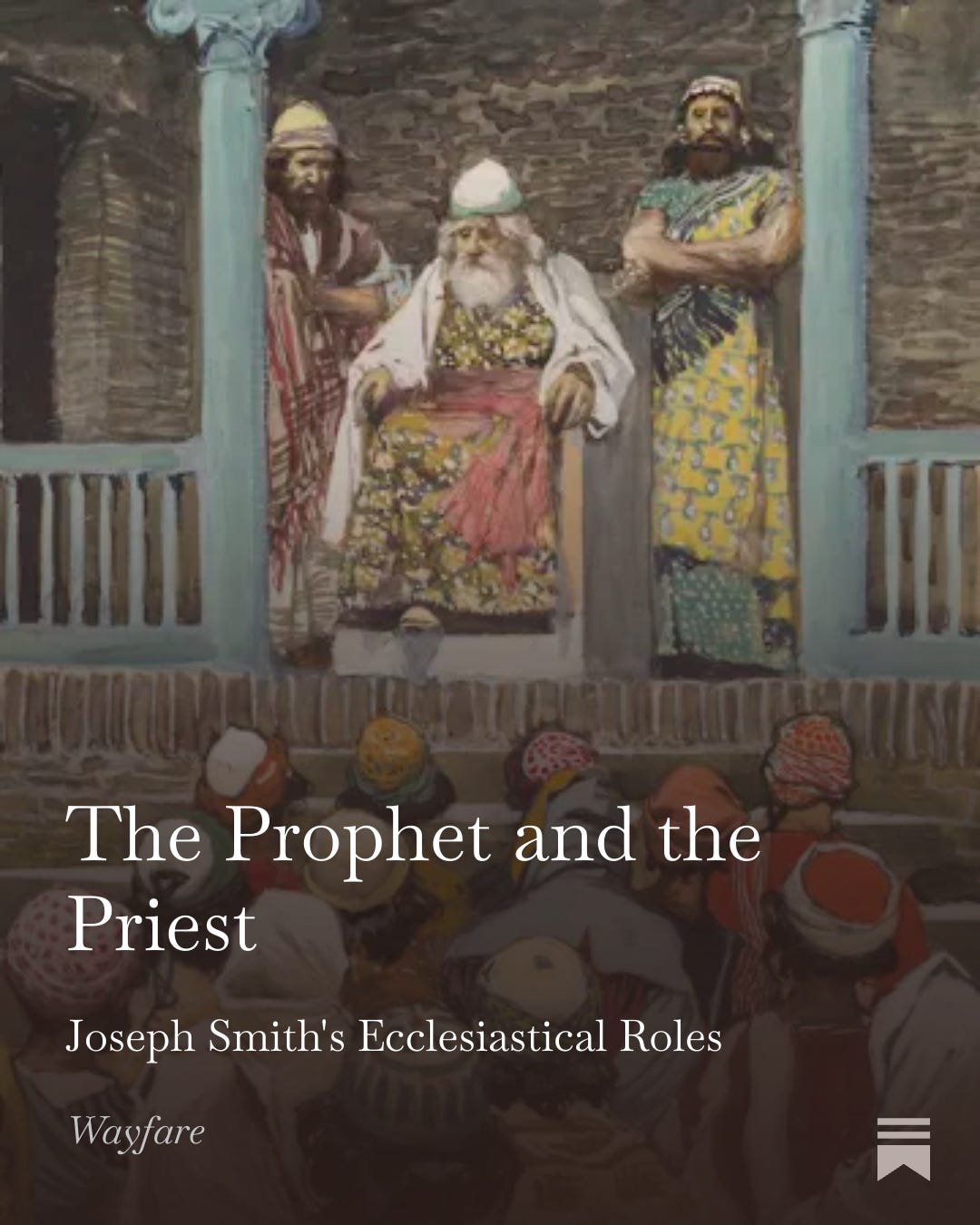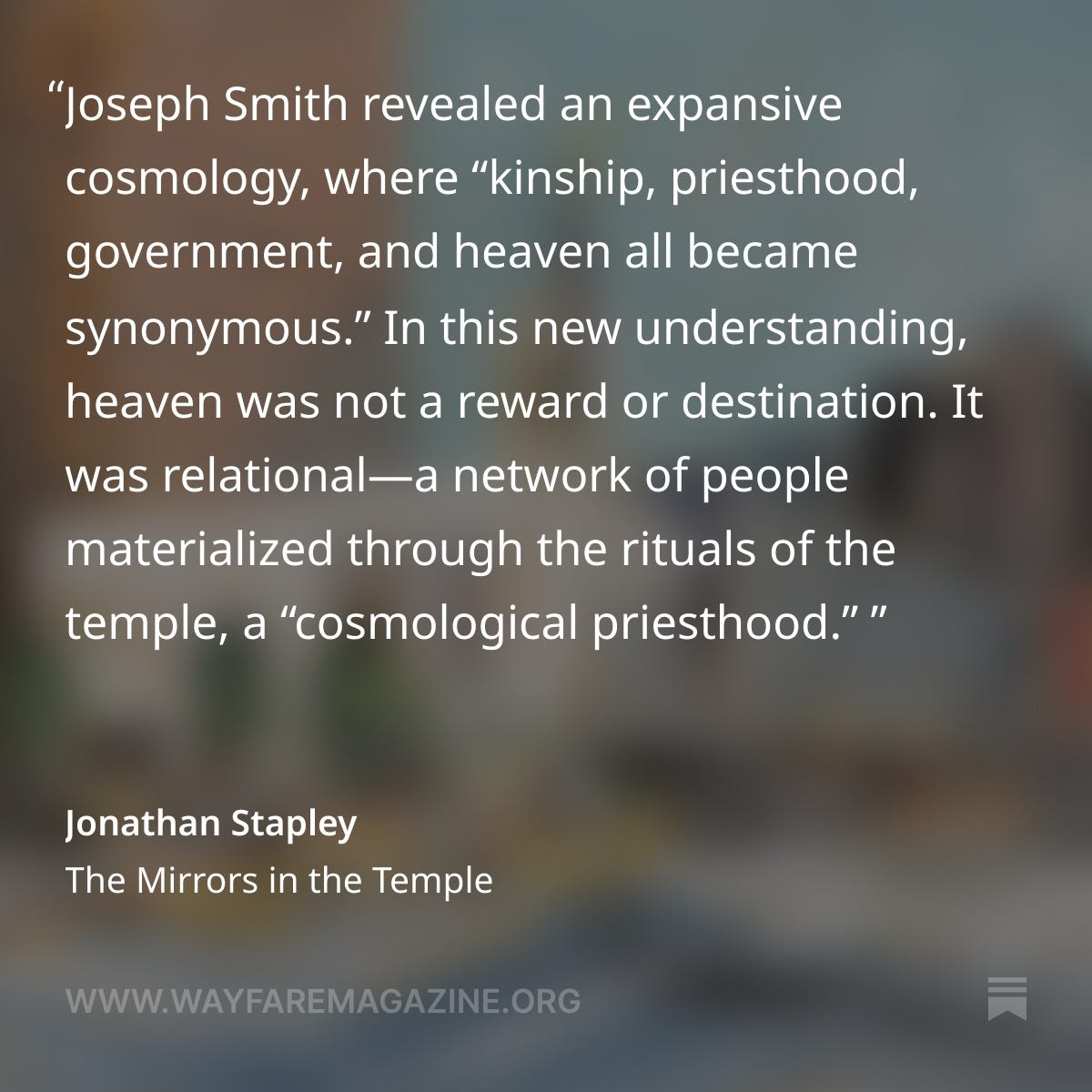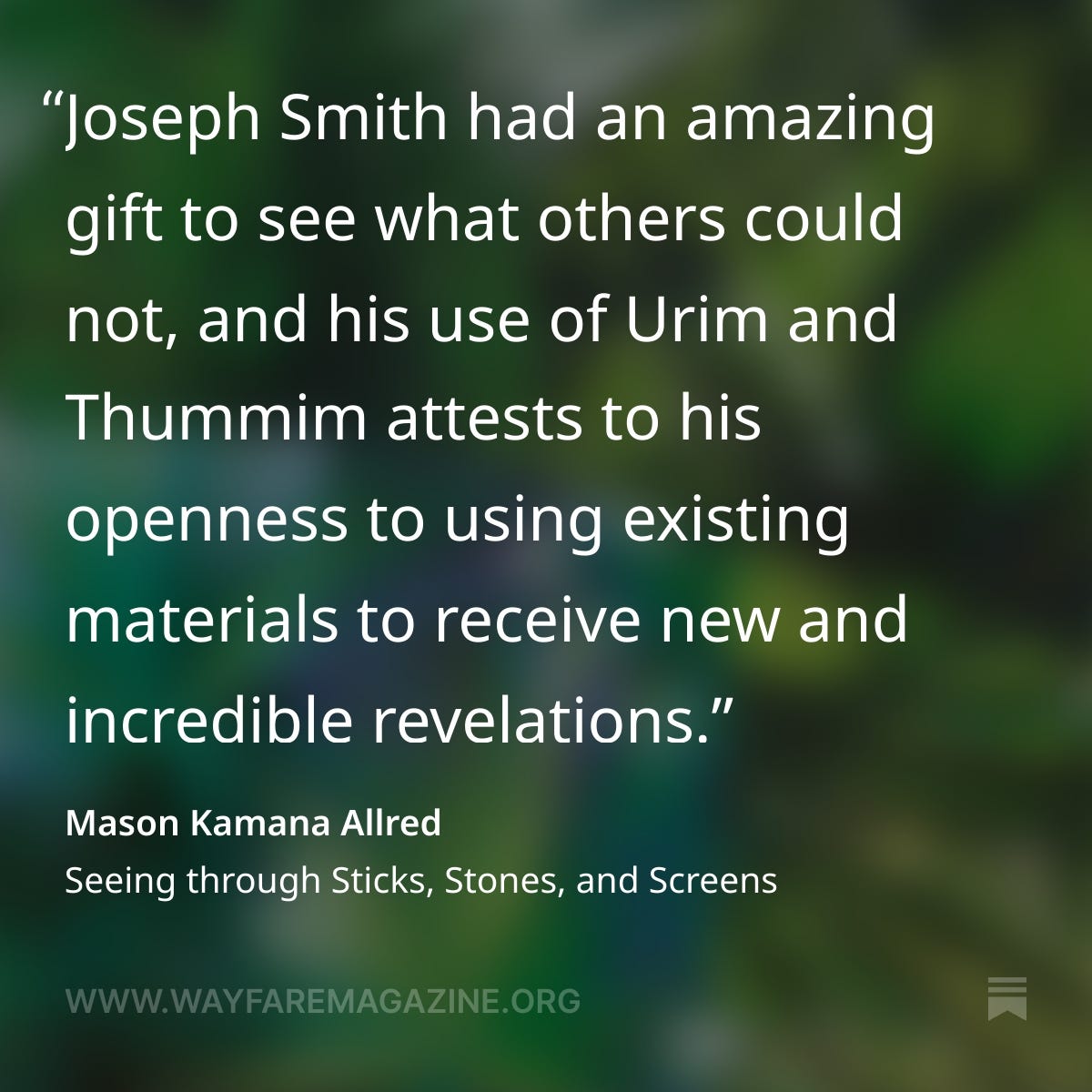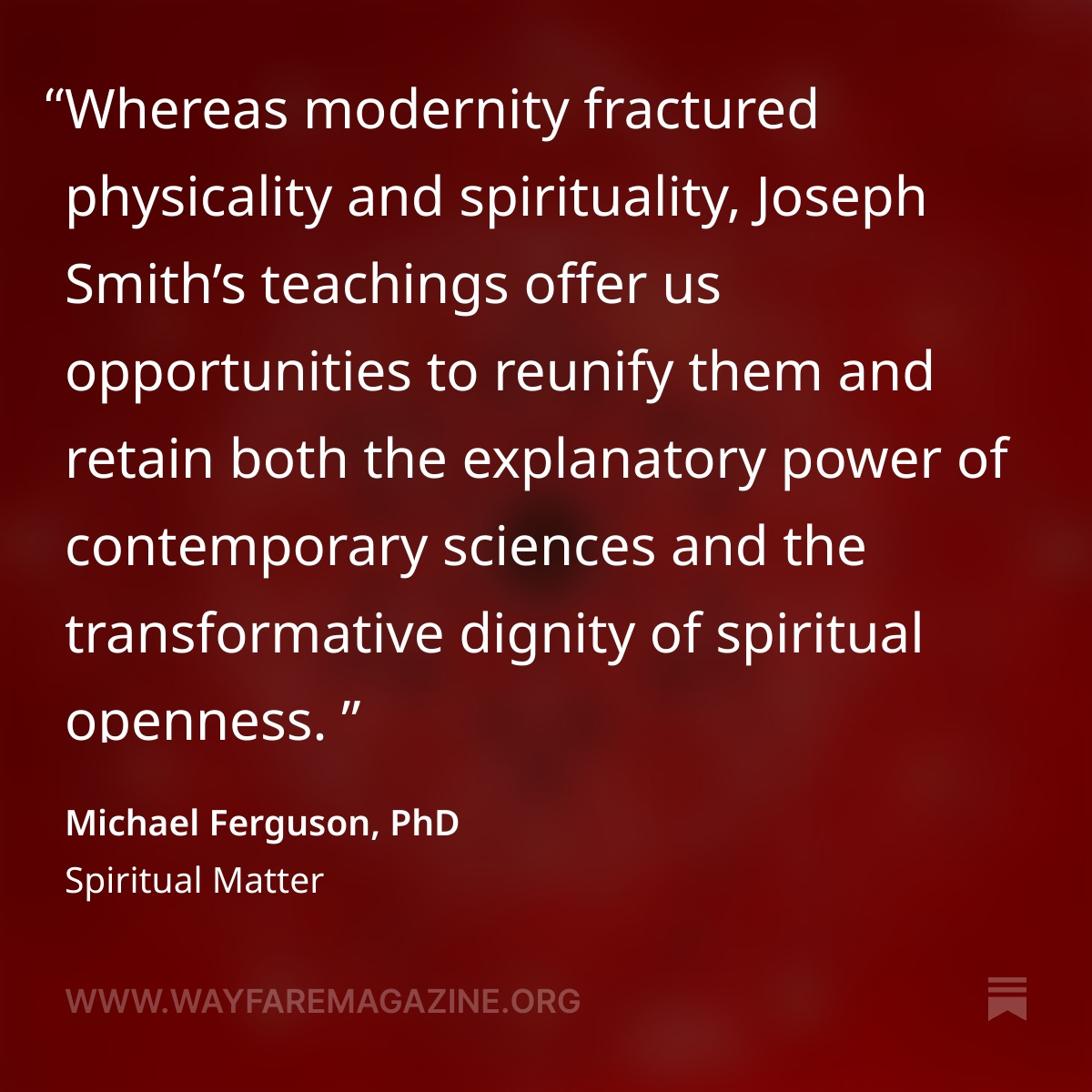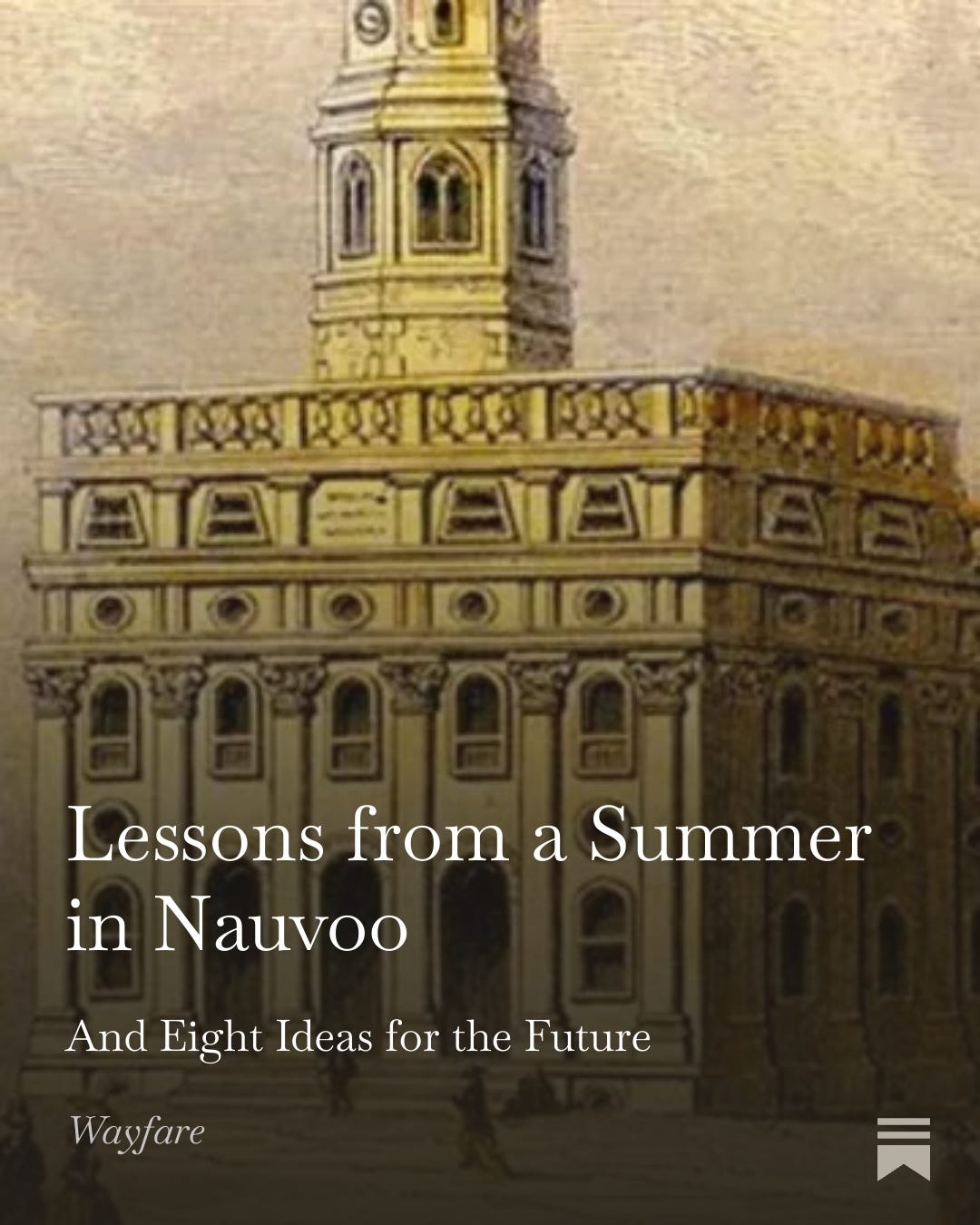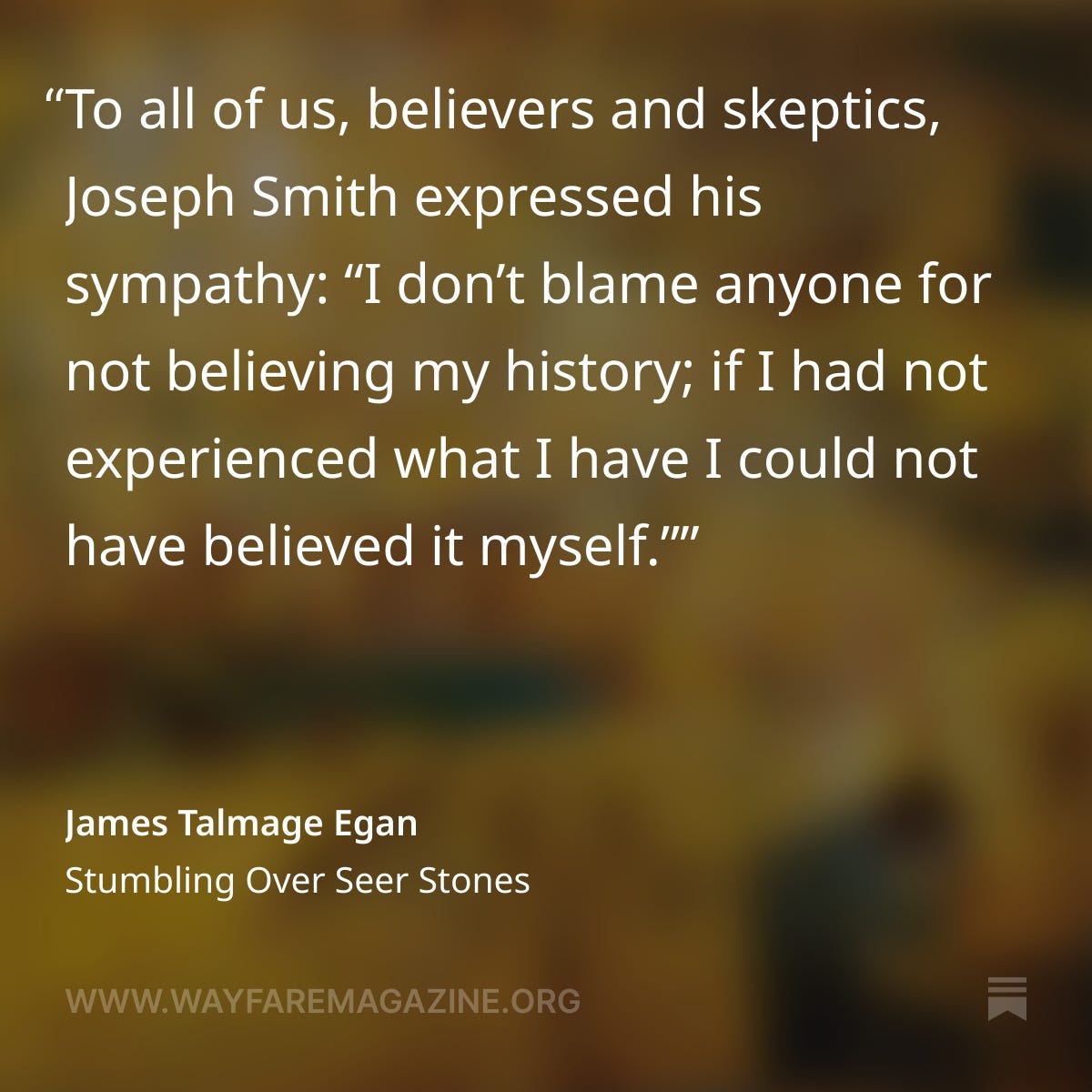What is the legacy of Joseph Smith?
Faith Matters resources to accompany your Come Follow Me study: November 24-30
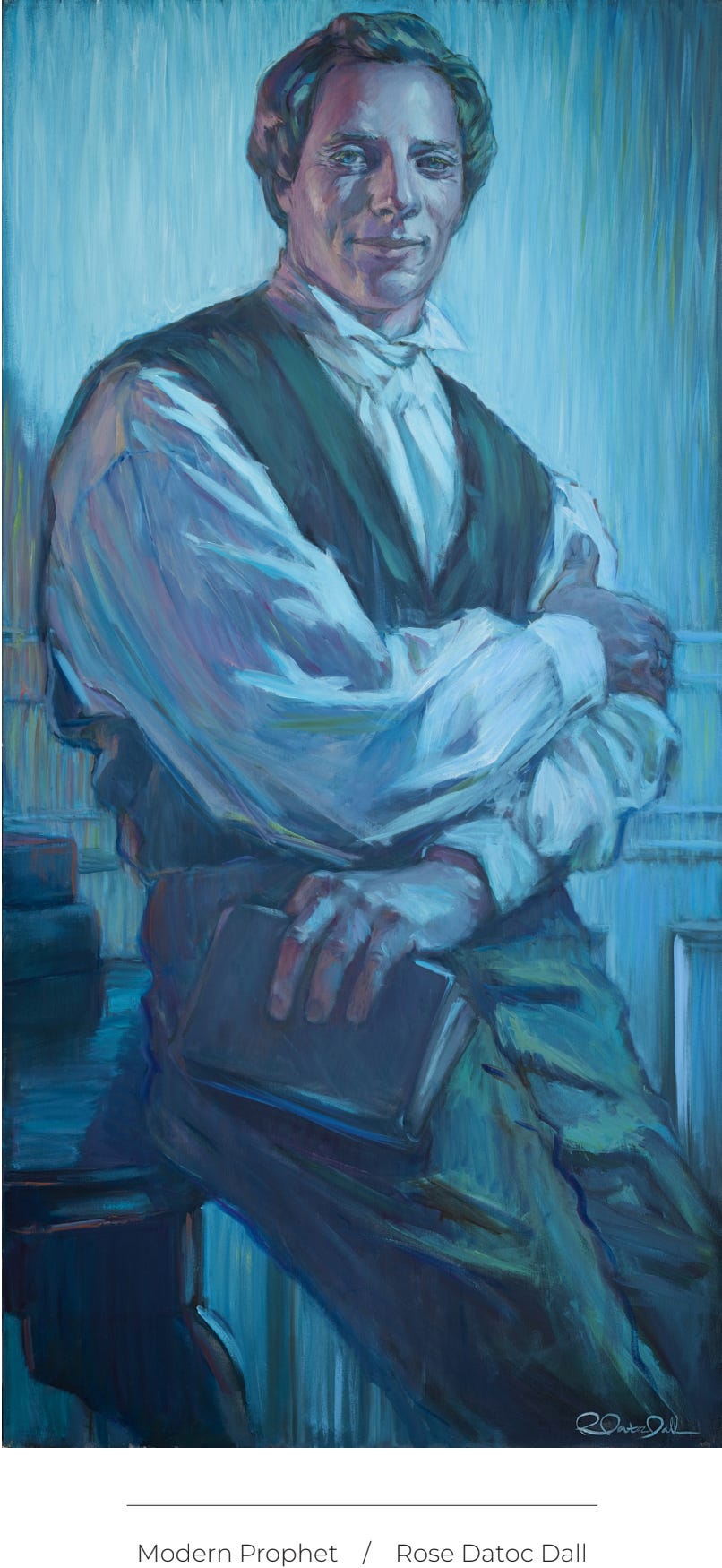
Joseph and Hyrum Smith sealed their testimonies with their blood.
Joseph Smith was a prophet and witness of Jesus Christ.

Two figures emerge from the fire, one of whom calls the young boy by his personal name—Joseph. In the articulation of his name, the shaken boy hears himself called by a divine voice of absolute love—a voice which never anger speaks, nor malice, unkindness, disrespect, judgment, nor blame—for God is incapable of feeling anything but absolute love toward the children struggling to gain a foothold on this bewildering planet. The voice uttering words of peace, joy, gentleness, kindness, and solace to Joseph and to each one of us, is the voice of God Almighty.
Joseph walked into the grove to address a God sometimes described as vengeful and violent in the biblical text and in Milton. The God he encountered, however, was full of love and compassion and mercy—just like His Son. This changed the entire trajectory of Joseph’s life, I believe. As a result of this encounter Joseph wrote that it was absolutely imperative that each one of us obtain “a correct idea of God’s character, perfection, and attributes.”
—Fiona Givens, “Can we trust and worship the wrathful God of scripture?”
Smith’s journey serves as a reminder that the path to divinity is not found solely in the external world of rituals and dogmas, but crucially in the innermost realm of our hearts. Like the wisdom of Solomon’s listening heart, Smith’s teachings illuminate the importance of silent, inward surrender as a necessary and direct way of experiencing the divine. In the silence of contemplation, one can find a bridge between the outward and inward, the seen and unseen, the spoken and unspoken, realizing that our faith is not only an intellectual exercise, but an experiential encounter.
—Michael Ferguson, “American Mystic”
I can help accomplish the Lord’s will as I follow His counsel.
I believe ‘Mormonism’ affords opportunity…for thoughtful disciples who will not be content with merely repeating some of its truths, but will develop its truths …The Prophet planted the germ-truths of the great dispensation of the fullness of times…The disciples of Mormonism, growing discontented with the necessarily primitive methods which have hitherto prevailed in sustaining the doctrine, will yet take profounder and broader views of the great doctrines committed to the church; and, departing from mere repetition, will cast them in new formulas…until they help to give to the truths received a more forceful expression, and carry it beyond the earlier and cruder stages of its development.
—B.H. Roberts, The Improvement Era, 1906
It is not enough only to know what God intended for his children in previous generations. We have to know what God wants for us right now.
The ongoing Restoration means that every generation, and every person, must rediscover the gospel of Jesus Christ for themselves… What does the Restoration mean for you, today, at this moment? What does God need you to do that no other person and no other generation has ever done?
—Patrick Mason, Restoration
The poor will receive the kingdom of heaven. The brokenhearted will be healed. The captives will be liberated. The blind will see. The bruised will be made whole. In the ultimate sense, this is the work of atonement and reconciliation that only our Savior Jesus Christ can fully accomplish. But in the more immediate sense, the call of the Restoration is for each recipient of Christ’s redeeming love to extend that grace by co-participating with him as “saviors... on Mount Zion.”
That salvation cannot and will not wait for the next world. The restoration of God’s people is here. The restoration of God’s people is now.
—Patrick Mason, Restoration
The Lord can bless me when I am struggling.
Christ will be our witness. not in a tribunal or in a court where we need defending, but in a setting in which he wants to celebrate those efforts that we have made to be his disciples and to witness of him. And that’s why the third term that I use is the term paraclete, because I don’t think advocate captures it and I don’t think comforter captures it.
The etymology of paraclete is “one who proclaims along the side of.” And I think Christ is telling us that among his other callings and roles and missions, he came to this world and was incarnate so that he could bear witness of what we experience, what we suffer, and how we struggle to honor him.
—Terryl Givens, “Peaceable Things: Three Names of Christ”


